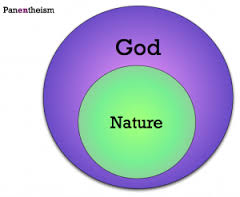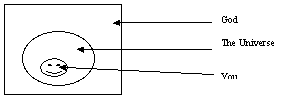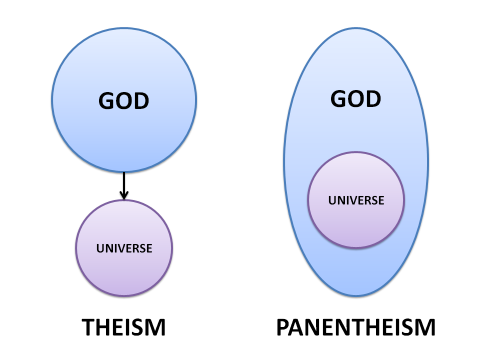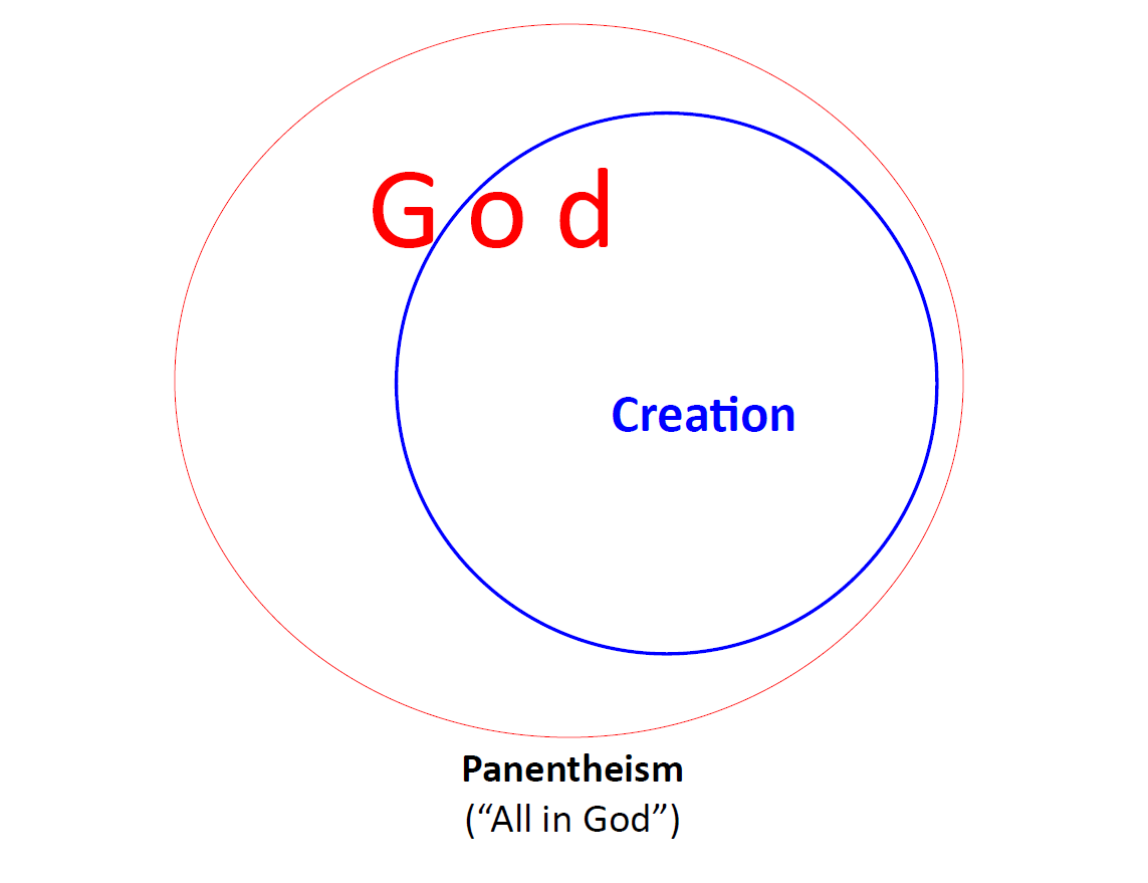- Jan 25, 2009
- 19,765
- 1,428
- Faith
- Oriental Orthodox
- Marital Status
- Private
- Politics
- US-Others
Respectfully, IMHO, it seems the argument you are giving is akin appeal to ridicule. For the example of scripture already shows where the Lord spoke at TWO different locations through TWO different individuals...and the response given to that isn't about noting where the Lord did speak in two differing places - but instead to say "Well, how odd does that look? "1+1=2! That's the most ridiculous thing I have ever heard!"What picture, so to speak, would be illustrated if a group appeared over here and another over there? It would be a picture of adultery.
Having things noted for where others go (appointed times and pilgrimage) were not limited to one location according to the examples in David's time - and even with them, it was not as if God was limited in illustrations to show what it meant to serve/follow Him since previous examples/instructions pointed to later developments meant to illustrate love for Him in marriage.
Showing disbelief in a claim/thinking it wild doesn't show that it is false or inaccurate.
God never called what happened with the two priesthoods adultery - just as it's not a lack of unity that Yeshua is praying for us/making intercession and yet the Holy Spirit is doing the same - and thus, it'd not matter whether or not you or I think of it as such since that'd be us taking our own sentiments......and going past what the Lord said on the issue/how he operated (in his mind showing a reflection of who HE is in being everywhere/able to help others no matter what when it comes to His Mercy). If we assume He could only be in ONE location, then we end taking his actions of operating simultaneously in TWO or MORE places (as happened often in scripture and as occurs even with the Holy Spirit and Christ BOTH interceding for us while being outside of time) - and making them of no importance because of our leanings.
What God noted in Exodus 15:17 does not change where it was the case that He often noted REPEATEDLY how he'd meet with his people intimately - regardless of location - all of it indicative of intimacy with him
John 4:19
21 Woman, Jesus replied, believe me, a time is coming when you will worship the Father neither on this mountain nor in Jerusalem. 22 You Samaritans worship what you do not know; we worship what we do know, for salvation is from the Jews.
God not only lives in the Heavens but also inside His people, the church. The Greek word here for dwell comes from the word for house, and conveys taking up residence in a placein this case, the body of the believer. This is very siginificant when thinking consider how incredible this isthe infinite God of the universe has chosen to make His home in your heart. And this is even more amazing when we think about the words of Solomon: But will God indeed dwell on the earth? Behold, heaven and the heaven of heavens cannot contain You. How much less this temple which I have built! (1 Kings 8:27).21 Woman, Jesus replied, believe me, a time is coming when you will worship the Father neither on this mountain nor in Jerusalem. 22 You Samaritans worship what you do not know; we worship what we do know, for salvation is from the Jews.
1 Corinthians 3:15-17
Dont you know that you yourselves are Gods temple and that Gods Spirit dwells in your midst?
Ephesians 2:21-22
And in him you too are being built together to become a dwelling in which God lives by his Spirit.
....you also, as living stones, are being built up a spiritual house, a holy priesthood, to offer up spiritual sacrifices acceptable to God through Jesus Christ. (1 Peter 2:5)
Dont you know that you yourselves are Gods temple and that Gods Spirit dwells in your midst?
Ephesians 2:21-22
And in him you too are being built together to become a dwelling in which God lives by his Spirit.
....you also, as living stones, are being built up a spiritual house, a holy priesthood, to offer up spiritual sacrifices acceptable to God through Jesus Christ. (1 Peter 2:5)
As said before, Stephen also realized this when they accused him on the Temple in Acts 6-7 and he noted the same exact thing...
But as it happens the word for "dwell" is very rare in the OT, used only five time -- twice in the passages noted above, and elsewhere:
Ps. 49:14 Like sheep they are laid in the grave; death shall feed on them; and the upright shall have dominion over them in the morning; and their beauty shall consume in the grave from their dwelling.
Is. 63:15 Look down from heaven, and behold from the habitation of thy holiness and of thy glory: where is thy zeal and thy strength, the sounding of thy bowels and of thy mercies toward me? are they restrained?
Hab. 3:11 The sun and moon stood still in their habitation: at the light of thine arrows they went, and at the shining of thy glittering spear.
This is also in connection with seeing the massiveness of who the Lord is in general - when it comes to him being beyond creation itself in terms of dwelling. After Jesus was taken up to heaven, the apostle John received a magnificent vision of glory. He said, "I saw no temple therein: for the Lord God Almighty and the Lamb are the temple of it
and the Lamb is the light thereof" (Revelation 21:22-23). In other words, the only temple in heaven is Jesus himself. Even Yeshua says, "If a man love me, he will keep my words: and my Father will love him, and we will come unto him, and make our abode with him" (John 14:23).
And as Paul stated on Mars Hill in Athens, "God that made the world and all things therein, seeing that he is Lord of heaven and earth, dwelleth not in temples made with hands" (Acts 17:24).
Christ in the scriptures is portrayed as the INSTRUMENT of creation, "sustaining all things by His powerful word", (Colosians 1:16-7, John 1:3, Hebrews 1:3)---and whom by immanence is fully present in even the smallest atom....with all things connected to Him - the BIBLICAL concept known as Panentheism....




The simplest definition of Christian panentheism is simply that God is omnipresent and transcendent - that is, God contains the entire cosmos but the entire cosmos does not and cannot contain God. He is omnipresent because his uncreated energies permeate all Creation, generating and sustaining it. He is transcendent because his uncreated essence is inaccessible to us - it is wholly beyond Creation.
Personally, although the concept of God being present in creation is not necessarily a negative, I'd go with Panentheism over any other view (more shared in #26). And as it concerns the issue from a purely etymological perspective:
- Pantheism = All things are God / God is all things, or all things are part of God
- Panentheism = God is in all things
Kinda like my cells and molecules and blood and other things in my body are part of myself, but I am much greater than those and I cannot be seen in them .yet I am omnipresent through them, as I created them at my conception and sustain them throughout my life. God transcends creation as I transcend my body. Intelligence is everywhere. ..and the Universe is so massive that it'd make sense to know there has to be SOMEONE outside of it.






These are but a few, click on the link above to see dozens of them. If you've ever heard of Louie Giglio, he actually had a video he made on the subject of just how vast the universe is...and how as incredible it is, it by itself cannot exist apart from the Lord and nothing can exist outside of Him. One of the reasons why men are foolish not to fear Him, seeing just how big He truly is
Acts 7:49
'Heaven is my throne, and the earth is my footstool. What kind of house will you build for me? says the Lord. Or where will my resting place be?
'Heaven is my throne, and the earth is my footstool. What kind of house will you build for me? says the Lord. Or where will my resting place be?
Isaiah 66:1
Thus says the LORD, "Heaven is My throne and the earth is My footstool. Where then is a house you could build for Me? And where is a place that I may rest? "For My hand made all these things, Thus all these things came into being," declares the LORD. "But to this one I will look, To him who is humble and contrite of spirit, and who trembles at My word.
Thus says the LORD, "Heaven is My throne and the earth is My footstool. Where then is a house you could build for Me? And where is a place that I may rest? "For My hand made all these things, Thus all these things came into being," declares the LORD. "But to this one I will look, To him who is humble and contrite of spirit, and who trembles at My word.
And with God being able to be beyond comprehension and in all places, it shows why we cannot limit him
There is not one physical location in this universe where we can hide from the presence of God. As King David stated, Where can I go from Your Spirit? Or where can I flee from Your presence? If I ascend into heaven, You are there; if I make my bed in hell [the grave], behold, You are there. If I take the wings of the morning, and dwell in the uttermost parts of the sea, even there Your hand shall lead me, and Your right hand shall hold me (Psalm 139:710).
Through His Spirit, Gods reach extends to every nook and cranny of the universe, and there isas David wroteno place to flee from His presence. Others may say But if God is everywhere, does that mean that theres nothing seperate from who He Is. On that, one can attempt illustrating it through the concept of water (although physical analogies can never fully define God).
If God is like water the Ocean in which we are but a drop then when He made all things to swim in Him, its logical to understand that all things distinct in the Ocean are not the OCEAN itself. Theyre simply surrounded by it. as the water surrounds/affects the rocks, the plants, the fish and everything else inside. As many Christians who were scientists have noted, life is well designed and yet we know that there is an eternal/self-existent and personal God who created and upholds the universe while also being distinct from it (Genesis 1:1, John 1:1, Col 1:16, etc).
This concept was something that the Biblical patriarchs understood when it came to sacrificing/doing ministry before Him WHEREVER they were - just as the believers of the Church understood when they no longer assumed that one not being in the Temple in Jerusalem (or any other location) meant that they didn't have God's Spirit in them and somehow couldn't connect with Him intimately.
For they all went back to a Patriarchial model of ministry before the Lord - where the location itself was what they were not bound to in order to serve Him/connect (and knowing what would happen to the Temple later as Christ prophesied) - all things coming full circle.
Last edited:
Upvote
0



 , which is contrary to normal practice, but appreciative to those in attendance (John 2:9-10).
, which is contrary to normal practice, but appreciative to those in attendance (John 2:9-10). 
